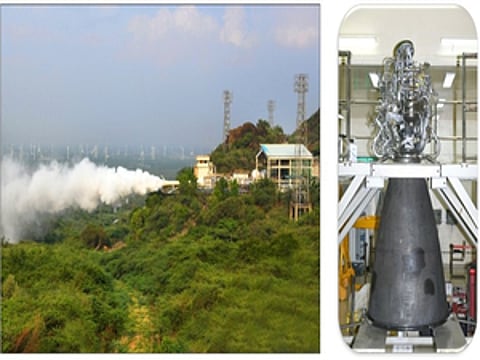

The Indian space agency, ISRO, on Wednesday said it has achieved a major milestone in the human rating of its CE20 cryogenic engine that will power the LVM3 rocket to carry Indian astronauts.
The Indian Space Research Organisation (ISRO) also said the first unmanned Gaganyaan (G1) mission is tentatively scheduled for Q2 of 2024. Gaganyaan is the name of India’s human space mission.
According to ISRO, the final round of ground qualification tests for CE20 cryogenic engine were completed on February 13.
The final test was the seventh of a series of vacuum ignition tests carried out at the High Altitude Test Facility at ISRO Propulsion Complex, Mahendragiri, to simulate the flight conditions.
The ground qualification tests for the human rating of the CE20 engine involved life demonstration tests, endurance tests, and performance assessment under nominal operating conditions as well as off-nominal conditions with reference to thrust, mixture ratio, and propellant tank pressure, ISRO said.
All the ground qualification tests of the CE20 engine for the Gaganyaan programme have been successfully completed.
In order to qualify the CE20 engine for human rating standards, four engines have undergone 39 hot firing tests under different operating conditions for a cumulative duration of 8,810 seconds against the minimum human rating qualification standard requirement of 6,350 seconds, the Indian space agency said.
ISRO has also successfully completed the acceptance tests of the flight engine identified for the first unmanned Gaganyaan (G1) mission tentatively scheduled for Q2 of 2024.
This engine will power the upper stage of the human-rated LVM3 vehicle and has a thrust capability of 19 to 22 tonnes with a specific impulse of 442.5 seconds, ISRO said.
Indian space agency Chairman S. Somanath had termed the year 2024 as the Year of Gaganyaan for ISRO as it will be carrying out various tests and other activities to realise the country’s manned space mission in 2025.
Somanath said ISRO will be carrying out two more abort missions in 2024. Last year, the space agency carried out the first Flight Test Vehicle Abort Mission-1 (TV-D1) to demonstrate the crew escape system.
According to him, ISRO will carry out two unmanned missions, helicopter drop test, launchpad abort tests and several others.